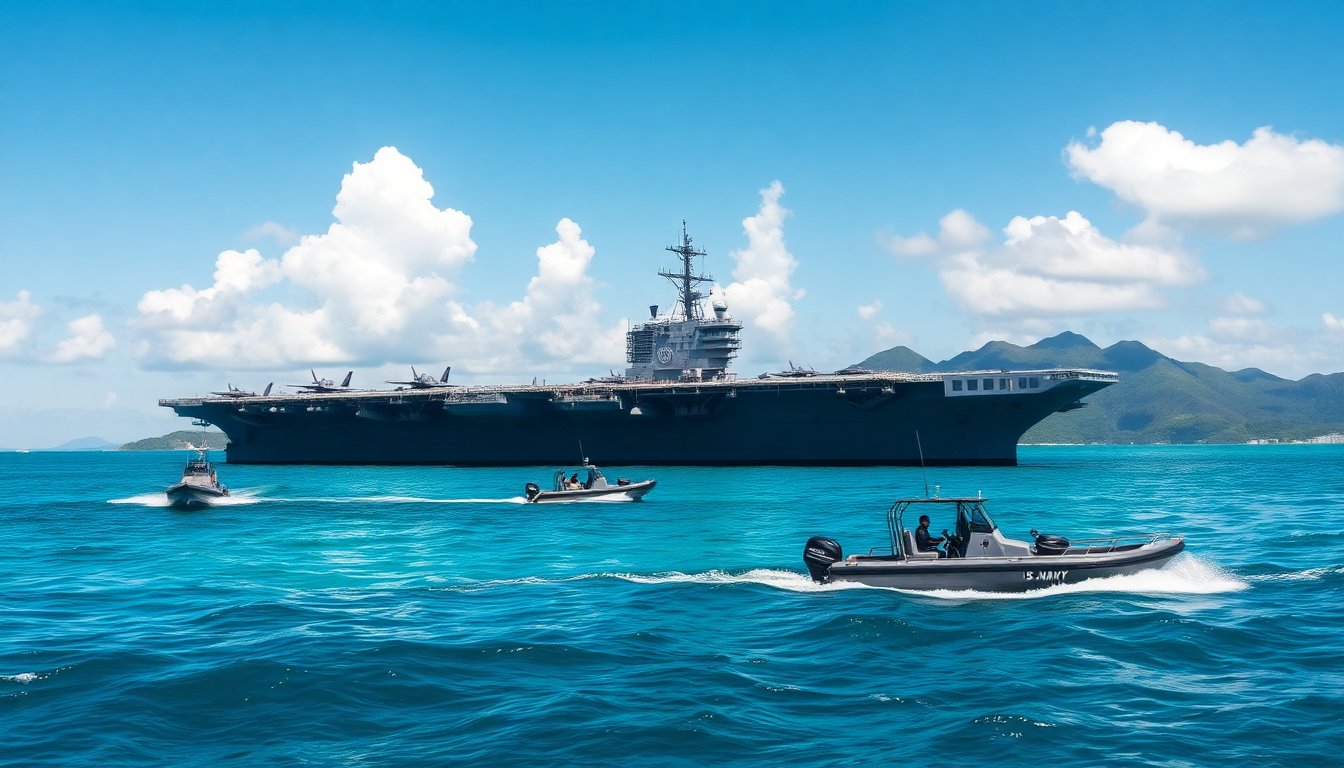Table of Contents
Pentagon deploys aircraft carrier to combat drug trafficking
The Pentagon has taken a notable step in military strategy by deploying an aircraft carrier to the Caribbean. This action signals an escalation in U.S. efforts to address drug trafficking in Latin America. The recent orders reflect President Trump’s commitment to not only disrupt the flow of narcotics but also to dismantle the criminal organizations involved in this illegal trade. This initiative is part of a broader strategy aimed at enhancing national security, especially given the concerning rise in drug-related deaths in the United States.
Trump’s strategy against drug trafficking
In a recent statement, President Trump highlighted the critical need to tackle the drug crisis, which results in over 300,000 American overdose deaths each year. He stressed the urgency of the situation, pointing out that prior efforts have fallen short. With enhanced military readiness, the United States is poised to take decisive action against drug trafficking routes, particularly those originating in Venezuela.
Military operations and congressional support
Trump indicated the necessity of returning to Congress to outline the administration’s plans for combating drug trafficking. He recognized the difficulties encountered in previous attempts but asserted that the U.S. military is now equipped with the resources and intelligence needed to conduct operations that could significantly disrupt drug transportation via land and sea.
Diplomatic tensions with Colombia
The increase in military presence has led to significant diplomatic consequences. Former President Trump criticized Colombian President Gustavo Petro for allegedly creating conditions that support narcotrafficking. Following what he considered inadequate responses to drug production in Colombia, Trump announced the suspension of U.S. aid, which had previously totaled hundreds of millions of dollars. This move has intensified the strain on relations between Washington and Bogotá, resulting in a diplomatic standoff.
Responses from Colombia
In response to accusations made by Trump, Colombian President Gustavo Petro defended his administration’s measures against drug cultivation. He emphasized his commitment to uncovering the links between the drug trade and political corruption in Colombia. Petro challenged Trump’s portrayal, stating that under his leadership, coca cultivation has seen a significant decrease. This exchange underscores the complexities of U.S.-Colombian relations within the broader context of drug enforcement efforts.
Implications for regional security
The deployment of the U.S. military, which includes eight warships and a submarine, signals a significant commitment to maintaining a robust presence in the region. Approximately 10,000 troops are stationed near Venezuelan waters, prepared to conduct operations against drug trafficking networks. The administration views this military buildup as crucial in the fight against organized crime, particularly as tensions escalate with other nations in the vicinity.
Potential consequences of military actions
The intention behind military actions aimed at curbing drug trafficking raises concerns about escalating violence and further destabilization in Latin America. Critics argue that military solutions could exacerbate existing tensions and lead to unintended consequences for local populations. As the United States navigates this complex landscape, balancing military objectives with diplomatic efforts will be crucial for fostering stability in the region.
President Trump’s administration is implementing significant measures to address drug trafficking in Latin America through military intervention. However, the effectiveness of these operations and their impact on U.S. relations with regional partners are yet to be determined. As the situation develops, the international community will closely monitor the outcomes of these intensified efforts.


